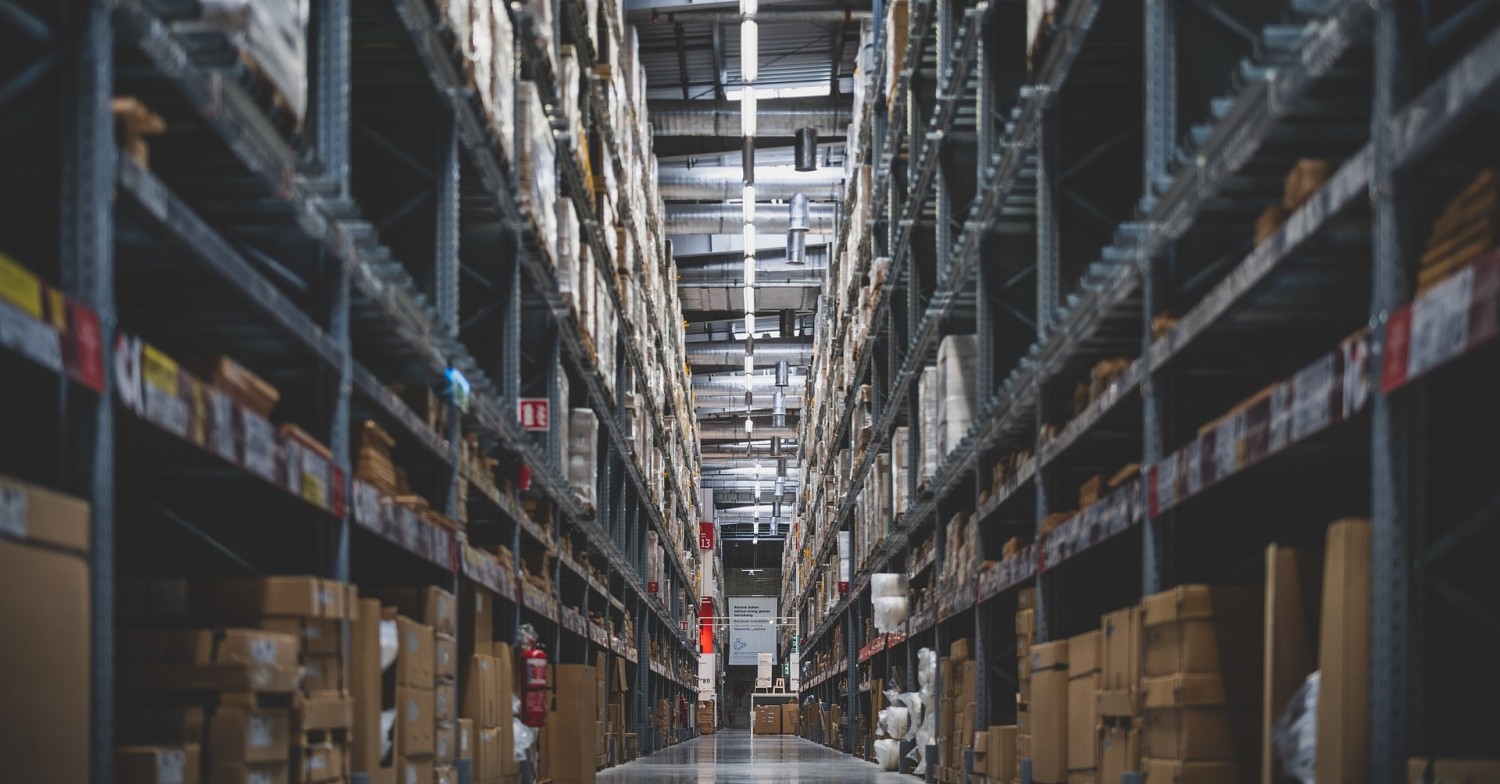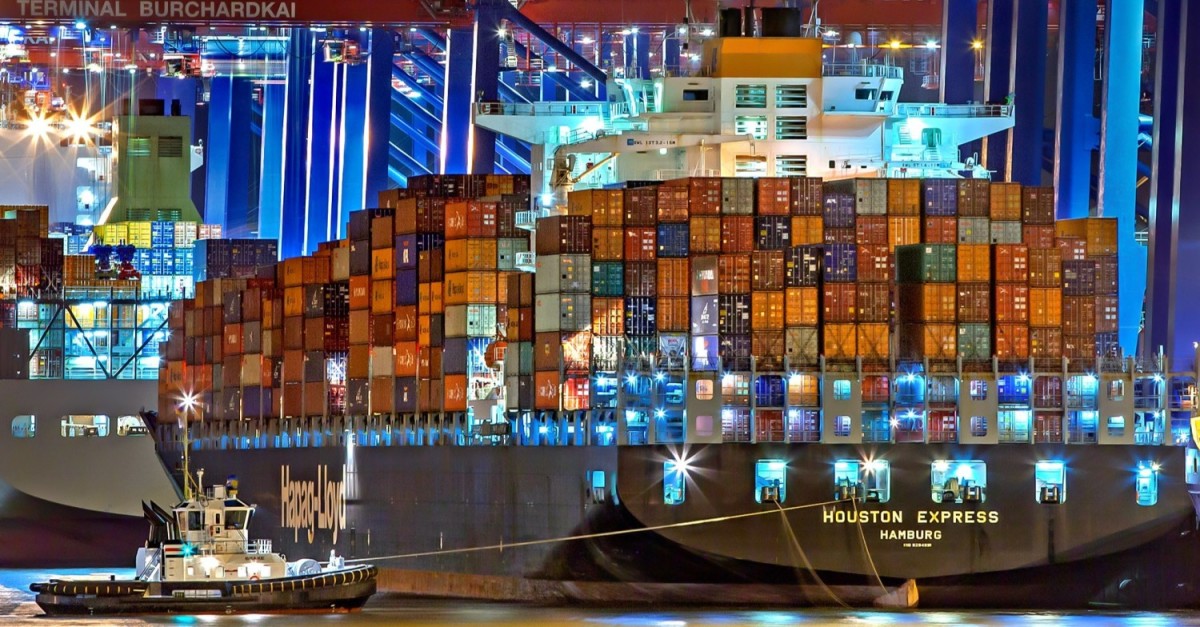
How to Become an Enterprise Architect
Help businesses navigate the shifting seas of today's technology by [...]

We operate in a global economic system. Goods that are labeled “Made in the USA” may be made of component parts manufactured in different countries or assembled in other countries using American parts. Small local businesses may rely on international suppliers for raw materials or internationally based shipping companies for transportation. No matter how you look at it, modern transportation logistics are complicated, and it will almost certainly grow more complex as time passes and technology evolves.
Transportation also represents the biggest slice of the logistics pie. Trucking, which is often critical to getting products into the hands of consumers, can take up 80 percent of a company’s logistics budget. Optimizing transportation logistics to reduce costs isn’t as simple as choosing among trucking companies, though. Producers and retailers have to think about warehouse locations, logistics technologies, tariffs, regulations, supply routes, inventory levels, and more.
That’s where transportation logistics specialists come in. These supply chain professionals manage companies’ transport and distribution systems—and they do it in a landscape that’s constantly evolving, thanks to increasing economic connectivity and changes in technology. They also do a lot of it. Fifty million tons of goods are transported daily along US networks. Businesses spend trillions of dollars on logistics every year. Transportation logistics can be a big part of any business.
Transportation logistics specialists obviously play an important role in businesses across industries. Even so, a lot of people are unaware that this role even exists. We aim to change that. In this article, we answer the question ‘What is a transportation logistics specialist?‘ by answering the following questions:
Supply chain management is an umbrella term that can be broken down into three main areas:
Transportation logistics is essential at every point in the supply chain, from the acquisition of input materials to the movement of intermediate products to the distribution of finished goods. Having a smart transportation logistics strategy is critical in supply chain management because:
Producing and distributing a single product typically involves a lot of moving parts, and transportation can quickly get expensive. That means effective and responsive transportation logistics is really, really important to a business’ success.
Transportation logistics specialists are supply chain professionals responsible for making sure a company’s transportation network is economical, reliable, and responsive. They work to prevent significant disruptions to the flow of materials and goods along the supply chain, and they deal with small issues rapidly, before they can escalate. Transportation logistics specialists design and analyze transport networks, structuring them so businesses can keep inventory levels as low as possible, thereby increasing profits. They also look for ways to reduce both the cost and the risk of inbound and outbound logistics. In other words, transportation logistics specialists keep things moving, from the raw materials’ point of origin to the distribution of finished goods.
Higher transportation costs and unreliable transportation can lead to all kinds of issues (particularly reductions in margins). Transportation logistics specialists’ responsibilities typically involve addressing small problems before they can become major issues and looking for opportunities to optimize existing transportation pathways. They do this by:
The simplest form of transportation logistics services involves balancing transport times against costs, but logistics specialists look at more than just shipping times. Freight costs can be lowered not only by choosing less expensive carriers, but also by streamlining production, changing warehouse locations, and changing materials vendors.
Updates and enhancements to the supply chain will always impact the transportation network, for better or for worse. Data analytics has fundamentally transformed the way companies handle transportation logistics. Today’s transportation logistics specialists can track pallets, containers, and trailers in real-time and see the effects of changes to other parts of the supply chain.
There are very few bachelor’s degree programs or master’s degrees designed specifically for people who want a career in logistics. Transportation is coupled with supply chain management in most programs. Most people (about 53 percent) in this role have a Bachelor of Science in Logistics and Supply Chain Management, BS in Operations Management, BS in Business Analytics, Bachelor of Business Administration in Supply Chain Management, or Bachelor of Business Administration with a Transportation and Logistics concentration (like the one offered by Texas A & M International University).
Some of these combined programs spend more time on general supply chain management. Still, it’s possible to find programs that emphasize transportation systems and distribution systems and touch on topics related to transportation logistics.
Students in most logistics and supply chain management specialist programs study:
The highest level of education you’ll need to work in this field is probably a bachelor’s degree, though about 21 percent of transportation logistics specialists have a two-year associate’s degree or a high school degree. Roughly 24 percent have master’s degrees, but again, programs for transportation logistics specialists usually grant combined supply chain management and logistics degrees, whether you’re looking at a Master of Science or MBA. The University of Denver offers a Master’s in Transportation Management, and the University of Washington – Seattle Campus offers a Master of Supply Chain Transportation & Logistics degree online. Depending on what type of company you want to work for, a master’s degree in global supply chain management might be a better choice.
There are also certificate programs designed to give aspiring transportation logistics specialists the skills and knowledge they’ll need to oversee and manage transportation chains. These programs are typically geared toward supply chain professionals who want to transition into logistics roles. At Trident Technical College, for example, students take courses like:
Professionals in transportation logistics careers don’t need specific certifications to work, but many do have related professional credentials like:
Most employers at manufacturing companies and logistics companies won’t hire a transportation logistics specialist based on certifications alone—experience is more important—but having one or more of the above certifications can make an applicant more attractive. “Without a doubt, any certification would bump up someone in the job pool,” Bill Seliger, Director of Supply Chain for LSC Communications, told Supply Chain Dive. Transportation logistics specialists with certifications may also get paid more—sometimes a lot more. The certified professionals surveyed in the 2018 APICS Supply Chain Compensation and Career Survey Report reported salaries 27 percent higher than those without any certifications.
Unfortunately, transportation logistics specialists don’t make as much as other supply chain professionals. While most roles in the supply chain pay close to $60,000 to start, the average transportation logistics specialist salary falls somewhere between $37,000 and $46,000. Transportation logistics specialists with master’s degrees or MBAs in supply chain management might make more, but an advanced degree may not boost salaries in this field enough to justify the cost of a master’s degree. Working hard to advance to a logistics manager position is probably a better way to increase your earning potential.
Jobs are growing in supply chain as businesses face increasing pressure to deliver goods as quickly as possible. You might assume that streamlined transportation systems would make things faster, but distribution patterns are actually getting more complicated.
“Loads used to see two, three, maybe four touches before the goods were in the hands of the end-consumer,” one CEO of a large transportation company told Forbes. Now, getting products into the hands of consumers more efficiently can involve “seven, eight or nine touches moving the freight to a network of warehouses and forward positions… that final mile is being redefined almost every day.”
The role of transportation logistics specialists is also being redefined as technologies like AI, machine learning, blockchain, IoT/telematics, and cloud services are integrated into supply chain management. Logistics specialists can monitor, control, analyze, and optimize transportation networks more efficiently than ever before.
Some supply chain managers are prioritizing transportation because it’s an area of the chain where real-time decisions can be driven by data. In short, transportation logistics specialists do more than just look for cheaper trucking companies. These professionals have the power to address issues related to materials procurement, shipping, and distribution quickly—and to use data science to improve efficiency across the product lifecycle and boost a company’s bottom line.
(Last Updated on February 26, 2024)
Questions or feedback? Email editor@noodle.com

Help businesses navigate the shifting seas of today's technology by [...]

Who are the biggest supply chain employers in the United [...]

Procurement, transport, and storage aren't just for private businesses. Governments [...]

Supply chain managers are in high demand, meaning great jobs [...]

Looking to build a career in supply chain finance? We've [...]
Categorized as: Supply Chain Management, Business & Management